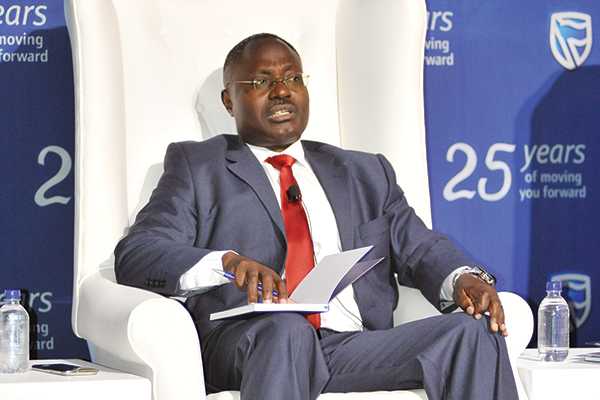Govt. drags feet on PPP implementation
Policy framework is still not implemented because the Attorney General Chambers is still proposing the amendment of the PPAD Act- PPP Coordinator, Orono Otweyo
The private sector has urged government to increase its pace on implementing the Public Private Partnership (PPP) model since the policy was adopted in 2009.
Commenting in a panel discussion during the Stanbic Bank Botswana PPP conference on Wednesday, Botswana Public Officers Pension Fund (BPOPF) representative said the Ministry of Finance and Economic Development (MFED) should improve their pace on its processes.
“The policy has been adopted in 2009 and it is still not implemented because we are still waiting for the amendment. We want to support the government and we have the money to invest but we end up taking our money offshore because we need correct legislation,” he said.
Bona Life chief executive officer, Regina Vaka said the private sector is ready and eager to invest in government infrastructure but they are just waiting for the action plan. “Government should improve its pace. By now we should be hearing about the action plan on this PPP project since it has been adopted in 2009”.
Ministry of Finance and Economic Development, PPP Coordinator, Orono Otweyo said the policy framework is still not implemented because the Attorney General Chambers is still proposing the amendment of the PPAD Act. “Currently the proposal is at the Attorney General Chambers so we don’t know when it is going to be approved,” he said.
Otweyo said the government’s responsibility is broader because it must protect the public assets so it takes time to implement some projects. He said PPP is a complex project so the government ensures that right procedures are put in place before implementation of public projects.
“We appreciate that private sector is ready to partner with us but the government responsibility is broader. We have to make sure that correct measures are in place before starting any project. This is to protect the public assets,” said Otweyo.
He explained that the role of the MFED is to support government in delivering the PPP but they need the private sector to come on board. “We are already moving as the government, it might not be faster as expected. We need to work together with the private sector as a team,” said Otweyo.
Standard Bank’s Energy and Infrastructure Affairs Executive Vice President, Aadii Cajee said the success of the PPP project requires political commitment. “It is important for the ministry to have political commitment to drive the PPP project. In Kenya it became successful because the President was pushing it,” he said.
He said the size of the market and the costs incurred under feasibility studies also determine the success of the project. Currently MFED is in consultation with other ministries to identify potential PPP projects. The ministry has indicated that most infrastructure projects contained in the 11th NDP are potential PPP projects.
A pilot project, being the Office Accommodation for the Ombudsman and Land Tribunal, were implemented before the adoption of PPP Policy. The P55 million project was constructed for 16 months and handed over in July 2008 under a 10-year concession, which ends in July 2018.






